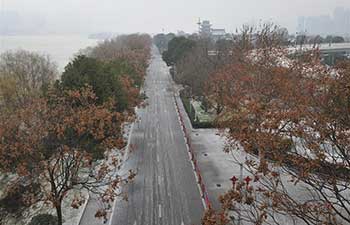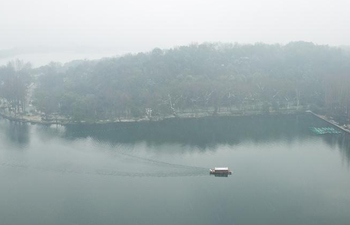XI'AN, Jan. 26 (Xinhua) -- An archaeological excavation discovered the history of Yan'an city in northeast China's Shaanxi Province can be traced back 4,500 years, 2,300 years earlier than the previous estimate.
Yan'an was the heartland of the early revolutionary activities of the Communist Party of China.
The provincial cultural heritage bureau said that archaeologists discovered housing and cooking sites and city walls at Lushanmao Site in Baota District of Yan'an City. A large number of cultural items including pottery, stoneware, boneware and jadeware were also unearthed at the site.
The site, covering an area of two million square meters, is one of the largest prehistoric settlement sites in China.
The earliest documentary record of the city's founding can be traced back to the Qing and Han dynasties around 2,200 years ago, said Du Linyuan, a professor at Yan'an University.
Based on features of the unearthed artifacts at the site, the city's establishment can be dated at least 2,300 years earlier, Du added.
The ruins of three big buildings were also found in the core area of the site. Du said the buildings were apparently not residence for ordinary people, but probably premitive palace buildings, judging from the materials they used.

















